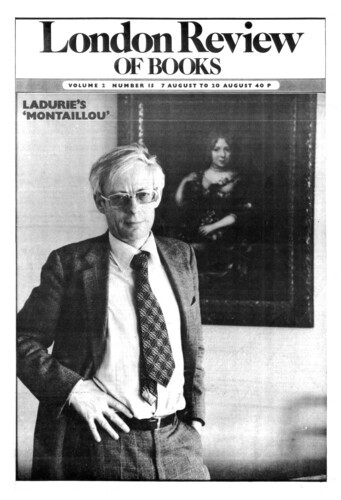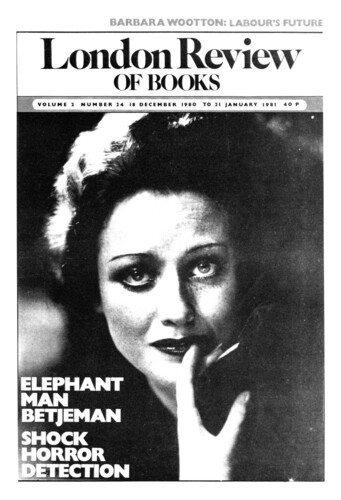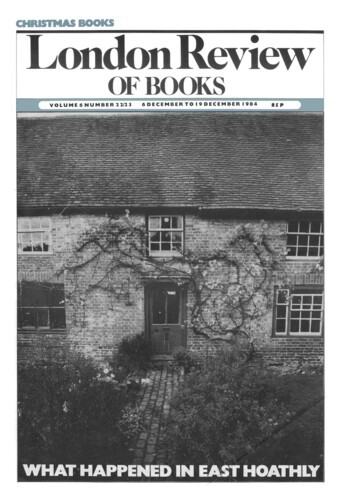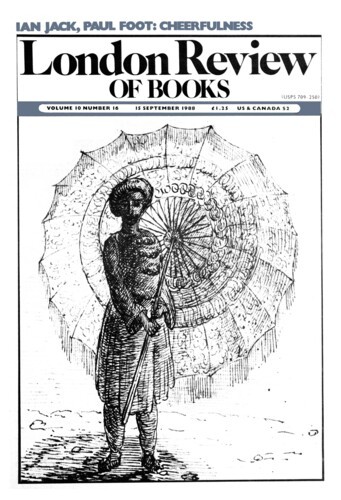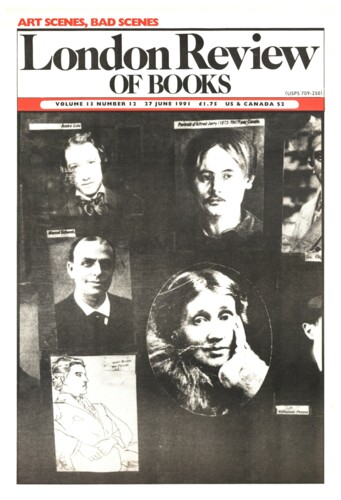Alexander Blok’s Beautiful Lady
T.J. Binyon, 7 August 1980
The appearance of the second volume of Avril Pyman’s life of Aleksandr Blok to join the first, published last year, brings her enterprise, the fruit of some twenty years’ work on the poet, to a triumphant conclusion. Blok’s life is well-documented, and the period is almost too rich in contemporary memoirs. Dr Pyman demonstrates a complete mastery of the sources, both printed and in manuscript, using the original diaries, notebooks and letters in Russian archives to supplement the expurgated Soviet editions. With loving care she assembles detail upon detail to build up what must be the fullest possible account of Blok’s life and immediate environment. At the same time, she analyses the sources of the poet’s inspiration, charts the movements of his psyche, and presents us with a comprehensive account of his development from a hermetic lyricist to a prophet of the Revolution.
